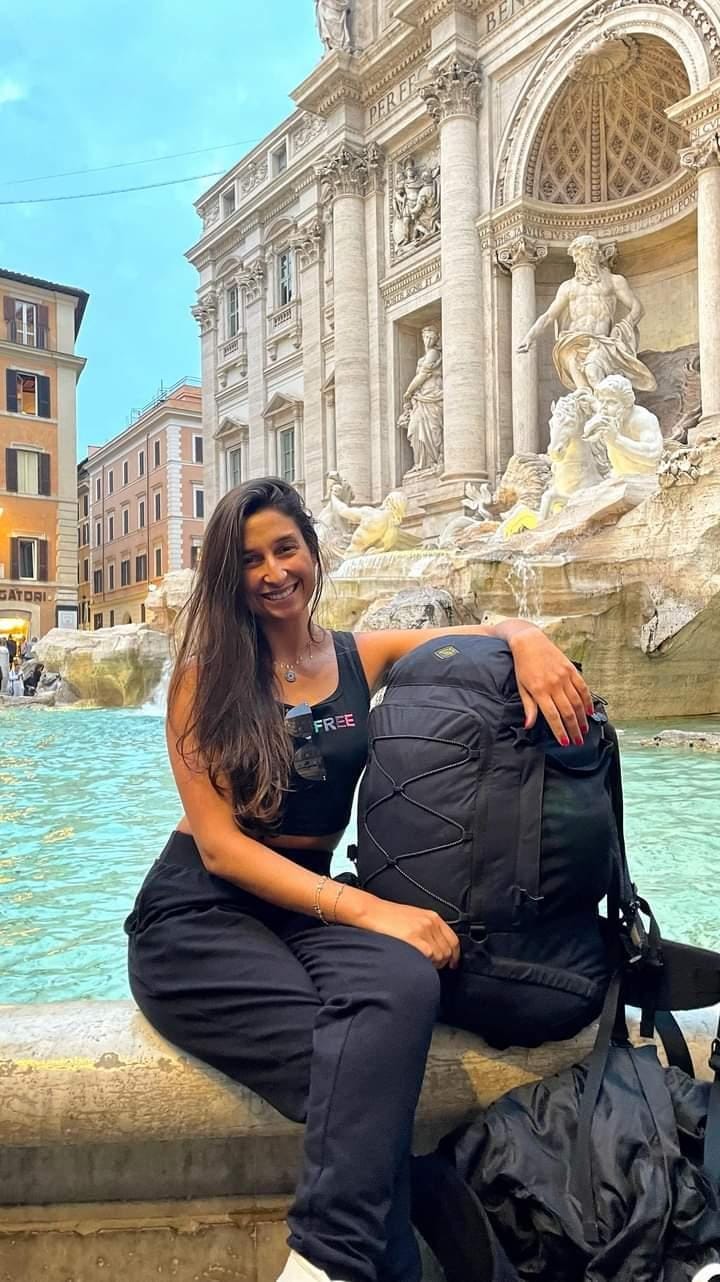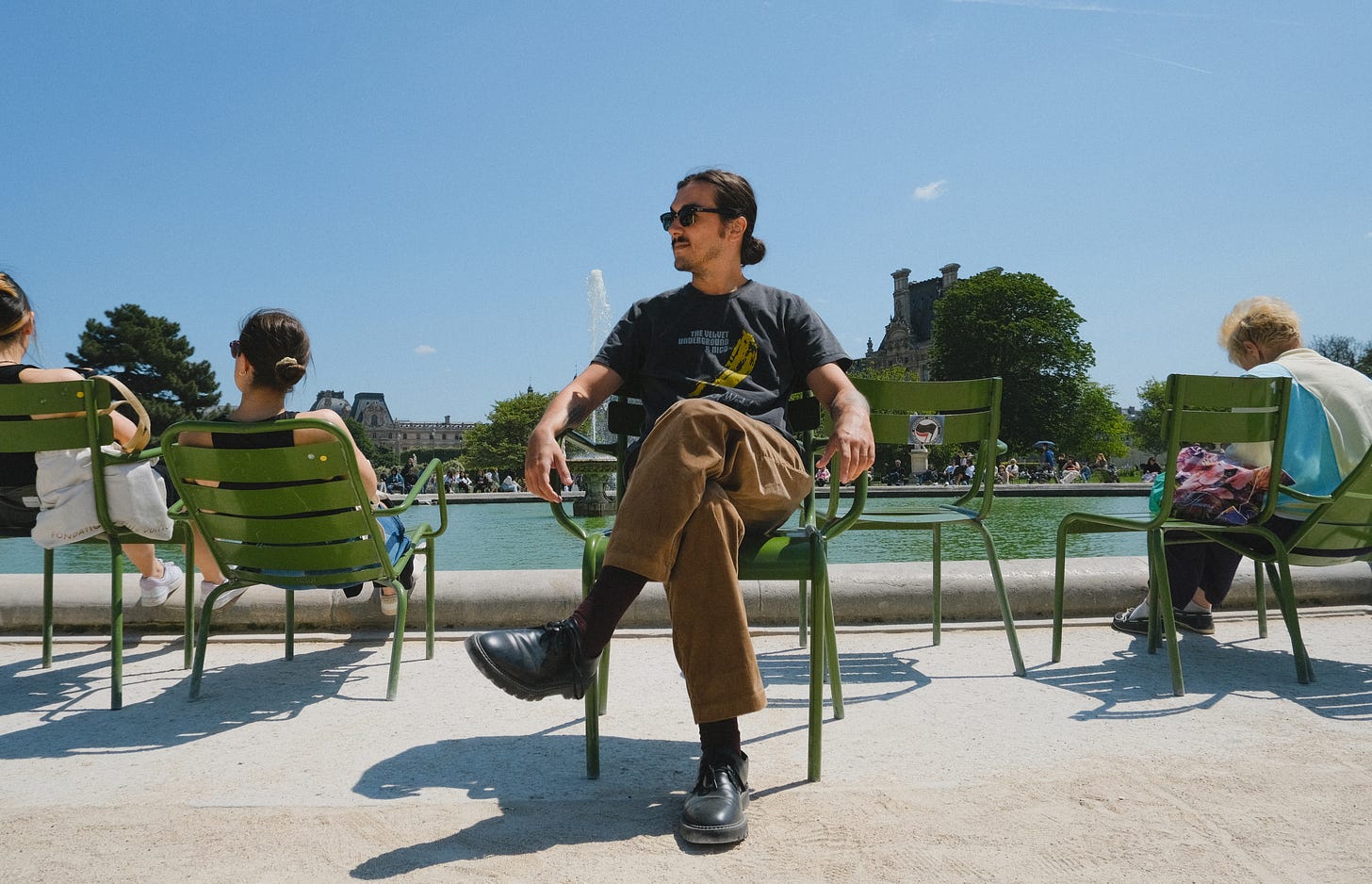The end of the nomadic life
How long does this lifestyle typically last, and what leads to its conclusion? Read interviews with two former nomads
How long do you intend to live this nomadic life?
This is one of the questions I frequently hear (alongside how much I spend on rent, if I'm a tech guy, and what I do with my belongings).
Six main factors can lead to the end of nomadism (or a pause).
Extreme fatigue from constantly moving around with bags, planning trips, dealing with airports and bus stations, and adapting to a new city or country. In short, when the longing for a home sets in.
An irresistible job offer in a specific country or city. Or suppose freelance or entrepreneurial life isn't going well. In that case, it might be necessary to rethink the path, accept an in-person job, or adopt a stable and more economical lifestyle.
A family illness that requires you to care for a loved one. Or the death, so you will need to spend time caring for the rest of the family and organizing bureaucracies.
Even more crucial than the previous point, is if you have an illness that requires constant treatment.
If love crosses borders and defies deadlines, falling in love with someone who isn't nomadic might be a reason to hang up the nomadic lifestyle.
Falling in love with a city and desiring to live there longer.
For the first time, I fell in love with a city. Not that I didn't like all the places I've been to so far, like Budapest, Belém, Manaus, Porto Alegre, Brasília, Rio de Janeiro.
But there's something different in the air in Buenos Aires, where I've been since September 5th. I won't focus on it because this post is about something other than Buenos Aires, but the city is very walkable and safe, with a vibrant life in parks and squares, delightful cafes and restaurants, and lively nightlife.
Financially, it's a great advantage. Argentina has been experiencing a severe economic and social crisis (well, that's been going on for about 30 years, but it's getting worse), and the Brazilian currency, which isn't strong in most places, is strong here.
I still have over 20 days before I leave, and thinking about it makes me anxious. As an Uruguayan rock song says, "I don't know what to do with myself anymore".
I will continue with the nomadic life. I have flights and Airbnbs booked until December, and I'm already planning my 2024. But how do I deal with the life I won't have in Buenos Aires? Why do I interrupt well-lived days for uncertain ones?
It's the price of the nomadic life. It is necessary to renounce some lives to have as many good lives as possible. I want to have the same feeling in Rome in November.
There are alternatives to relieve this pain. If I liked Buenos Aires so much, nothing stops me from returning other times. In the future, I may choose three or four cities I really like and live in each for a while.
The end will always be a question that haunts a nomad. And that's why I talked to two former nomads about endings.
The astrologer Ellen Noronha, 32, moved houses 14 times until 17. At 20, she started working as an auditor and constantly traveled throughout Brazil and Central America. It's as if she had always been a nomad. That is until she genuinely became one in 2018. The pandemic in 2020 made her experience a life with less movement. Gradually, she realized that she missed it. She returned to being a nomad in 2022, but when we spoke in July 2023, she was giving up her nomadic lifestyle. Below are the main excerpts from the interview.
How has this process been for you?
My slogan is: at least one month in each place. I can't keep hopping around anymore. In October of last year, I decided to take a trip and went from one place to another. Even if it was within the same country, I no longer have that rhythm. You must research where you're going, moving, working, altogether. It doesn't allow you to focus on one thing or the other. I've learned that being a nomad doesn't mean being in constant movement. You can stay in one place for six months, establish a base, and then move on.
How have you been dealing with this?
Being a nomad messes with your psyche. I wake up every day with the expectation that I have to do something, to keep moving all the time. It's like I'm addicted to movement. Now that I have a home and need to stop for a while, it feels like the drug is leaving my system. It's crucial to think about the aftereffects. You must be structurally prepared to be a nomad. People romanticize the freedom of work and forget that your whole life goes with you.
What triggered this discomfort with nomadism?
I've been feeling this discomfort since I experienced having a home during the pandemic. "Hmm, how nice not to have to move my things from the bathroom all the time, to leave the toothbrush in the same place." I started noticing small things that I was missing. When I returned to being a nomad in 2022, I suffered a lot when leaving the house, and packing everything again. I didn't have much, but I accumulated a glass and a painting over a year and eight months. Because I changed a lot during my childhood and traveled a lot in the early years of my auditing career, I didn't build a secure foundation here inside. When the stable adult home came, I thought, "Wow, this gives me security, and makes me comfortable."
What will it be like going forward?
I have a dream: I don't want to choose between having a home and being a nomad. I want to have a base, a place to return to, and to keep moving. That's what I'm trying to process. You don't have to make decisions now. I want to be able to leave things in one place.
How is it to live through this?
This weekend, I'm going to São Paulo with a friend, and it will be the first time I leave my home, even if it's just for three days, renting another space. I don't understand how people can travel for 20 days and leave their rental empty. That never made sense to me, leaving a place unused. And now, I'm trying to force it a bit. I want to do some small tests to see how it goes, and how it is financially, and then in 2024, I want to take a more extended trip. My goal is to have a place, that doesn't have to be expensive, not necessarily trendy, but with some basic amenities.
How do you handle the farewell in the nomadic life?
Saying goodbye is getting increasingly difficult. That's why I'm facing this challenge. It's painful to leave. It's suffering; I cry. But it's funny because after five minutes, I've already forgotten the previous one when I enter another house. The adaptability we have is magical. I'm empathetic, but when I enter another space and feel at home, I don't even remember the previous one.
Do you consider yourself a former nomad?
The question of being a former nomad, I don't know. Matheus de Souza [the next interviewee] referred to himself as a former nomad. And that hit me hard. Shedding the nomad label is quite strange. I tried to say, "I'm no longer a nomad", but once a nomad, always a nomad. Being a nomad is forever within us.
I conducted the interview more than two months ago, so yesterday I sent a message to Ellen asking if her plans changed.
Hahaha, not at all! I'm still in Itanhandu, and just today, I signed a one-year lease for a house here in Minas Gerais! I'm moving in a week and starting from scratch with all the furniture; I only have an office chair and books, haha! I haven't made a move like this, signing a lease and furnishing a house, in 10 years; it's a big step today! I'm still a little attached to the label, but maybe I can already say that I'm a former nomad until next October 🥲 It's a scary change after all these years, but I'm thrilled! Anyway, I'm giving you this update because all of this happened today!
Matheus de Souza, another former nomad (2017-2023), talked about his professional future.
As a former nomad, how is it dealing with your content production?
The feeling is relief. Since 2019, I've exhaustively answered the same questions about digital nomadism, especially after my book was a finalist for a Brazilian award. I couldn't stand producing more content on the subject, but I felt trapped because I was still living a nomadic life. I have several literary projects in mind that will finally come to completion. I'll still create some content about travel (I'll continue to take occasional trips, but now I have a place to return to), but it won't be the focus of my editorial line. Now, I'm a Brazilian writer living in Paris, an expatriate. I plan to explore this other side.
You've always been a reference for nomads in Brazil; you were on all the lists of Brazilian nomads. Do you fear an impact on your budget in the early days after nomadism?
On the contrary. Some of these literary projects I mentioned in the previous question haven't materialized because of life on the road, including my next book. Fortunately, I've managed to establish a career that goes beyond that nomadic persona. Surprisingly, a course I launched about digital nomadism was a failure. My courses and workshops related to writing account for the largest share of my budget (and the Parisian lifestyle aligns perfectly with that; in terms of content and social media, this change will be significant).
How do you plan to handle the nomadism-related content you have?
My next book, a compilation of stories from my travels between 2017 and 2023, which will be released sometime in 2024, will close this chapter. My content about digital nomadism will remain available online, but I don't intend to update it or even keep myself informed about the topic. As far as I'm concerned, that chapter is closed. On the other hand, the immigrant experience is something I enjoy. João Ubaldo Ribeiro has a book of chronicles about his time in Germany ("Um brasileiro em Berlim") that I find wonderful, and I see myself doing it.







Buenos Aires 🫶🏽 so nice these interviews 👏🏽
Mateus, I’m so glad to read all of this conversation we had months ago, and also, get others perspectives from you and Matheus! Being a nomad gives us lots of “common feeling” that embraces us! Thanks a lot!